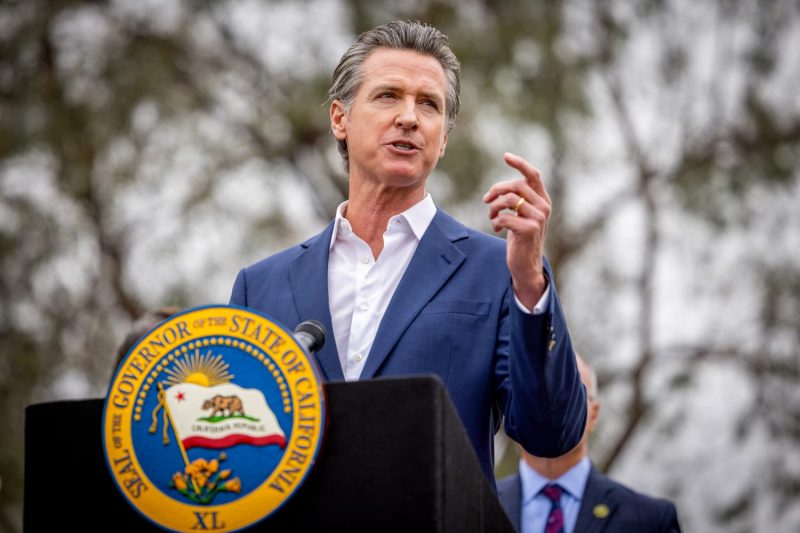California Governor Gavin Newsom has made a significant announcement regarding electric vehicle (EV) tax credits, stirring up a wave of response from residents and environmental advocates alike. Newsom’s promise to provide rebates to residents if the federal government under President Trump removes EV tax credits has the potential to reshape the future of transportation in California and beyond.
The issue of EV tax credits has been a contentious one, with differing opinions on the necessity and impact of such incentives. Supporters argue that tax credits help lower the cost barrier for consumers to adopt electric vehicles, thereby promoting a cleaner and more sustainable mode of transportation. Critics, on the other hand, believe that tax credits distort the market and unfairly benefit a specific industry over others.
Newsom’s proposal to offer rebates to California residents in response to potential removal of EV tax credits at the federal level reflects a proactive approach to incentivizing the transition to electric vehicles. By directly putting money back into the pockets of consumers, the state aims to overcome any setbacks caused by changes in federal policy and maintain momentum in the EV market.
One key aspect of Newsom’s plan is the focus on providing rebates to residents, which indicates a commitment to making electric vehicles accessible and attractive to a wider audience. By targeting individual consumers, the rebates can have a direct and immediate impact on promoting EV adoption and accelerating the shift toward sustainable transportation solutions.
Moreover, Newsom’s strategy can be seen as a way to retain California’s leadership in clean energy and environmental protection. In the face of federal rollbacks on environmental regulations and climate initiatives, the state has taken bold steps to continue its progress toward reducing greenhouse gas emissions and promoting renewable energy sources. By offering rebates for EVs, California can further solidify its position as a pioneer in sustainable practices and set an example for other states to follow.
The potential ripple effects of Newsom’s announcement extend beyond California’s borders. As one of the largest and most influential states in the U.S., California has the power to shape national policies and influence the direction of the automotive industry. By demonstrating a strong commitment to supporting electric vehicles, Newsom sends a clear message that the future of transportation lies in clean, efficient, and sustainable technologies.
In conclusion, Governor Gavin Newsom’s pledge to provide rebates to residents if federal EV tax credits are removed signifies a proactive and forward-thinking approach to promoting electric vehicles in California. By incentivizing consumers and demonstrating leadership in sustainability, the state sets a strong example for others to follow and helps drive the transition toward a cleaner and greener transportation sector.






























